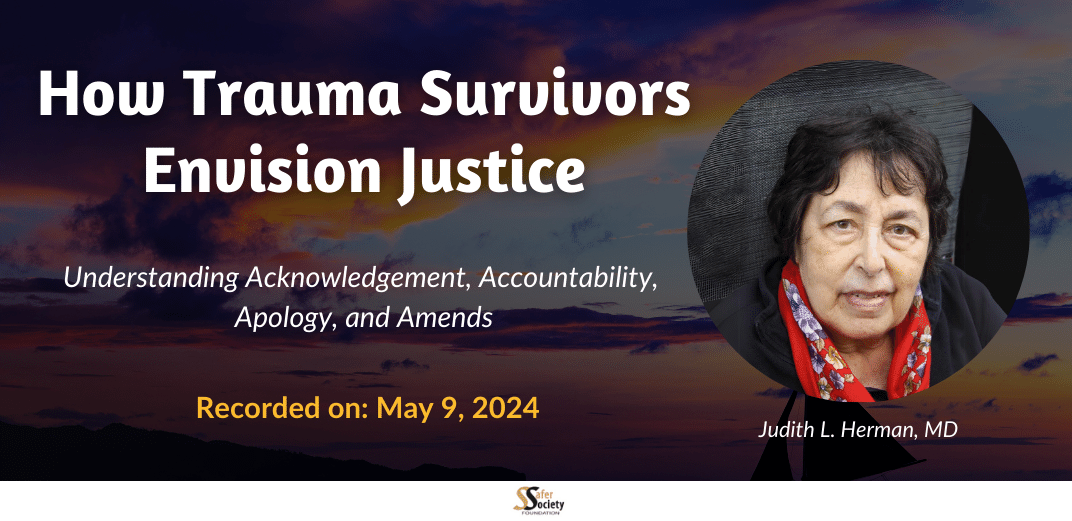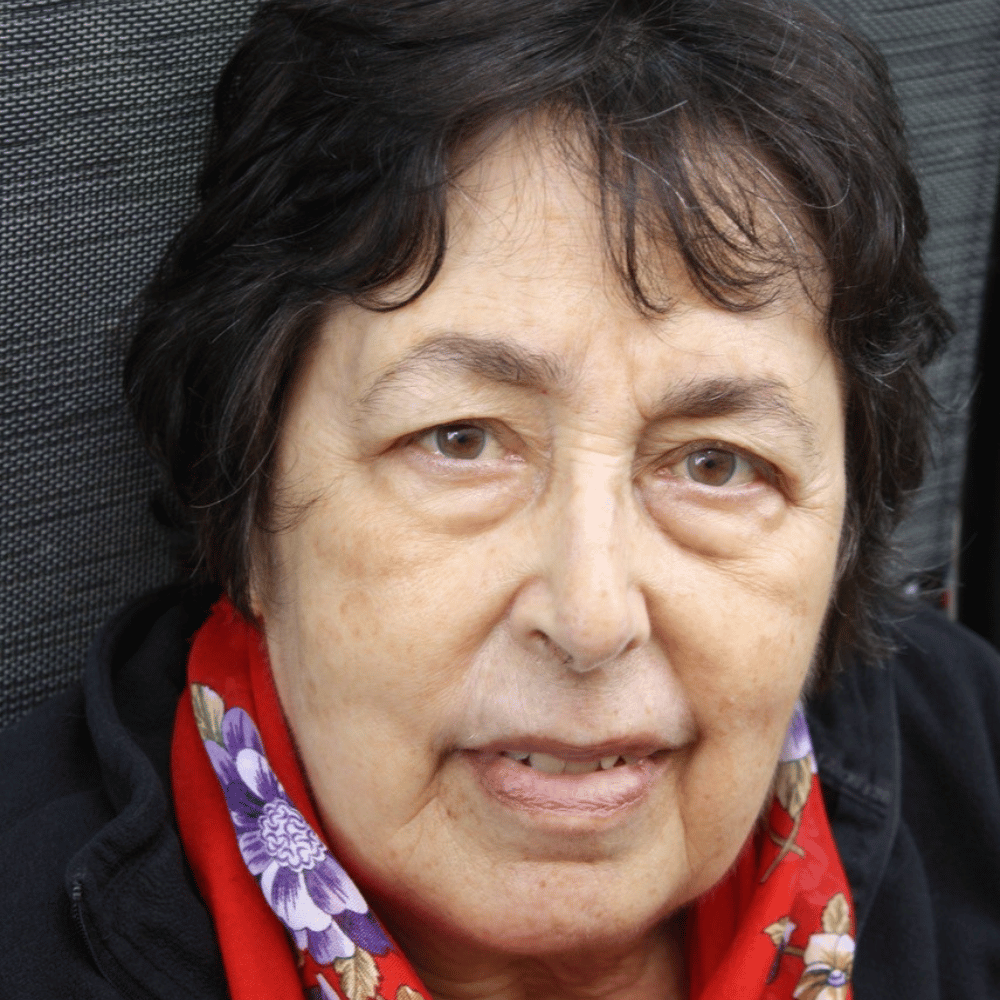
How Trauma Survivors Envision Justice
This webinar is for individuals working in the criminal justice system and those interested in improving services for trauma survivors.
Many who work in the criminal justice system quickly discover its shortcomings, from its cost to its questionable effects on recidivism. The data have been clear for decades that we can, and should, do better. Making matters worse, the criminal justice system is infamous for its failure to serve those who have been harmed by abuse. All too often, our treatment programs fail to address the needs of those most harmed by our clients.
 Dr. Judith Herman has dedicated her life to helping women recover from trauma. Her first book, Father-Daughter Incest, broke new ground in recognizing abuse. Trauma and Recovery, Herman’s second book, remains a respected text three decades after its publication. Now, her latest work, Truth and Repair: How Trauma Survivors Envision Justice, shines a light on the many ways we can improve our services in accordance with what survivors need.
Dr. Judith Herman has dedicated her life to helping women recover from trauma. Her first book, Father-Daughter Incest, broke new ground in recognizing abuse. Trauma and Recovery, Herman’s second book, remains a respected text three decades after its publication. Now, her latest work, Truth and Repair: How Trauma Survivors Envision Justice, shines a light on the many ways we can improve our services in accordance with what survivors need.
In this webinar, she discusses the results of her research and practice across many decades. It has involved listening deeply to survivors and understanding their core needs for acknowledgment of the abuse, accountability, apology, and amends. Dr. Herman also discusses the strengths and limitations of current responses to abuse, such as restorative justice and treatment programs for those who commit acts of violence.
Who's Presenting

Judith L. Herman, MD
Judith L. Herman is an American psychiatrist, researcher, teacher, and author who has focused on the understanding and treatment of incest and traumatic stress. Dr. Herman is a Professor of Psychiatry at Harvard Medical School, Director of Training at the Victims of Violence Program in the Department of Psychiatry at the Cambridge Health Alliance in Cambridge, Massachusetts, and a founding member of the Women’s Mental Health Collective. Dr. Herman was the recipient of the 1996 Lifetime Achievement Award from the International Society for Traumatic Stress Studies and the 2000 Woman in Science Award from the American Medical Women’s Association. In 2003, she was named a Distinguished Fellow of the American Psychiatric Association.
